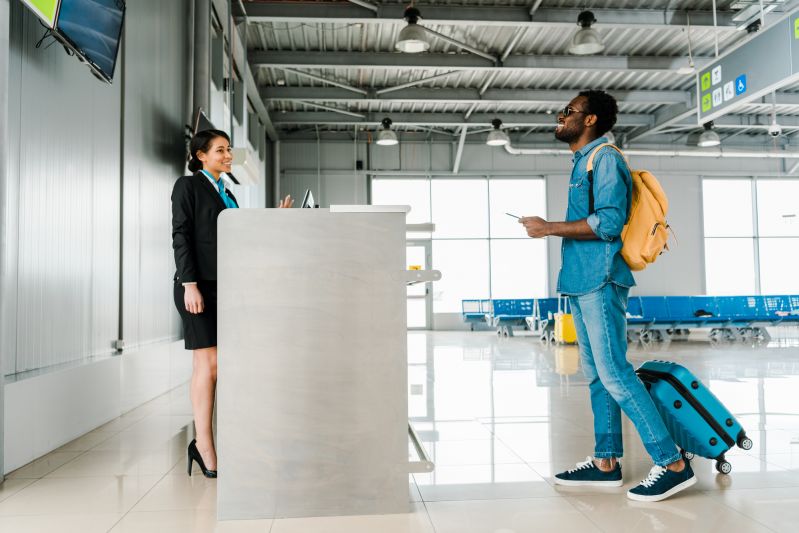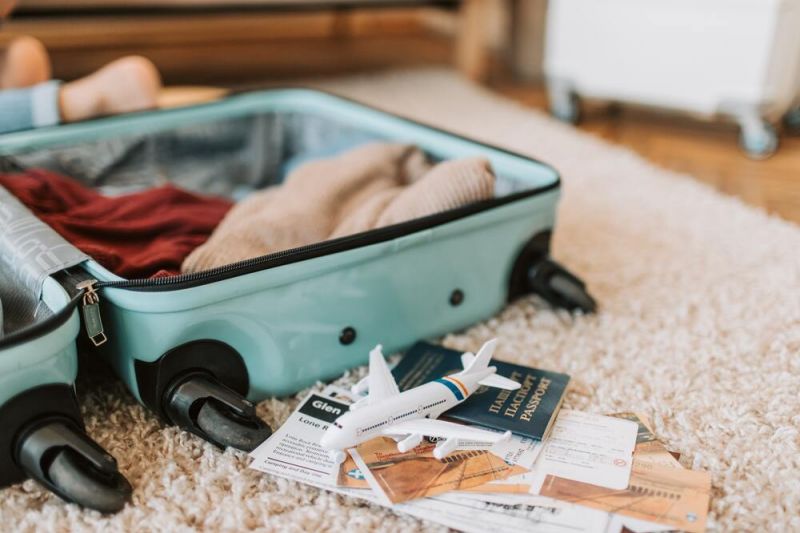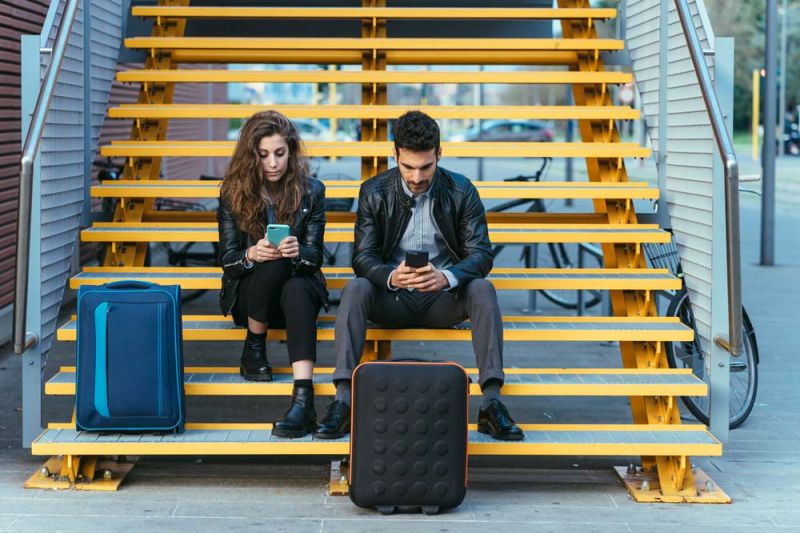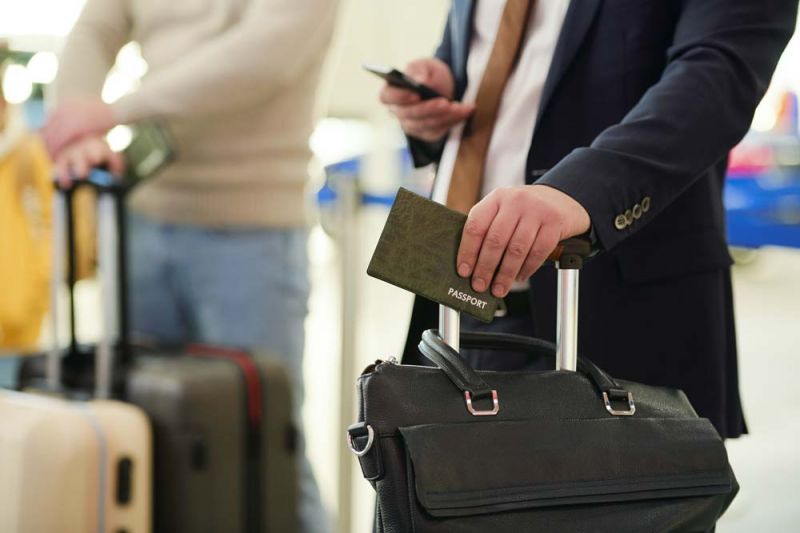
10 Essential Tips for Flying for the First Time
For first-time flyers, the whole experience of flying can seem a bit daunting. From booking your ticket, and packing your bags, to navigating through the airport, there's a lot to consider.
But don't worry, this comprehensive guide, brought to you by AirAdvisor, is here to help. We've assembled the top 10 essential tips to make your first-time flying experience as smooth as possible.
This article takes you step-by-step through some first time flyer tips, explaining the cheapest days to fly, how to pick your seat, check-in online, the baggage rules you should follow, and much more.
1. Pick the Cheapest Days to Fly
Knowing the best days to fly can significantly impact your travel budget. Generally, the middle of the week offers the cheapest airfares. Tuesdays and Wednesdays, in particular, are often less expensive than the rest of the week. This is because business travellers typically fly at the start or end of the week, and airlines tend to lower fares on less popular days to fill their planes.
If you're wondering how far in advance to book flights to get the best rate, it's worth noting that, while it can vary depending on your destination and the time of year, booking your flight 70 days ahead of your departure date typically gives you the best rates.
Remember, these are general guidelines and fares can fluctuate, so it's crucial to regularly monitor prices and take advantage of any price drops.
2. Pick Your Seat
Selecting your seat is more than just a formality; it can greatly influence your comfort and experience onboard. If you're someone who enjoys views or likes a bit more elbow room, window seats might be the perfect choice for you. On the other hand, aisle seats provide easier access to the lavatories and exit, which can be advantageous, especially on longer flights.
When booking your ticket, most airlines will give you the option to choose your seat. You can often do this via an interactive seating map that shows the layout of the aircraft. Some airlines may charge extra for certain seats, such as those with additional legroom or those located in the front of the cabin, so keep this in mind when making your selection.
If your flight was delayed, canceled or overbooked within the last 3 years, you could be eligible for up to €600 in compensation.Check Your Flight
3. Check-In Online
Online check-in is a fantastic tool for all air travellers, including first-time flyers. Most airlines provide this service, allowing you to check in for your flight via their website or mobile app before arriving at the airport.
Online check-in usually opens 24 hours before the flight departure and closes around an hour before domestic flights and 90 minutes before an international flight. During this process, you'll confirm your attendance on the flight and often have the chance to choose a seat.
One of the biggest advantages of online check-in is it saves you time at the airport. You'll bypass the long check-in lines and head straight to the security checkpoint if you're only carrying hand luggage. Even if you have checked baggage, many airlines offer a separate, often shorter, line for passengers who have checked in online.

4. Adhere to the Baggage Rules
Each airline has specific regulations regarding what you can bring onboard and how much it should weigh. Typically, airlines allow one piece of carry-on luggage and one personal item, such as a purse or laptop bag. The size and weight limitations for these items vary by airline, so be sure to check the rules of the airline you're flying with.
As for checked baggage, airlines also have specific weight and size restrictions. Exceeding these can result in hefty fees, so it's essential to weigh your luggage before arriving at the airport.
But it's not just about weight and size, there are also rules about what your luggage can contain. For example, flammable liquids, sharp objects, and certain foods are among the items prohibited in your hand luggage. And explosives and lithium batteries are examples of items prohibited in your checked luggage.

5. Dress Comfortably
Choosing the right attire for your flight, especially if it's a long-haul journey, can make a world of difference in your comfort level. Your in-flight outfit should strike the perfect balance between comfort and practicality. Here are some items and tips to consider when planning your flight clothes:
- Layers: Airplanes can fluctuate between hot and cold, so wearing layers is a smart move. Start with a light, breathable base and bring along a sweater or light jacket.
- Loose clothing: Opt for loose or stretchy clothing that allows you to move freely. Tight clothes can become uncomfortable over a long period and can restrict circulation, which is especially important to maintain on long flights.
- Socks and comfortable shoes: You might experience swelling in your feet on long flights because of changes in cabin pressure, so comfortable shoes and socks are a must. Compression socks can also help reduce swelling and prevent deep vein thrombosis (DVT).
- Scarf: A scarf can be great to use as a blanket if the cabin gets chilly. You can also roll it up as a makeshift pillow for extra comfort.
- Minimal accessories: Keep jewellery and other accessories to a minimum to avoid discomfort and also minimise delays when going through security.

6. Bring in-Flight Accessories
When preparing for your flight, especially if it's a long-haul trip, it's important to ensure your comfort. A few carefully selected in-flight accessories can greatly enhance your overall experience.
For instance, noise-cancelling headphones or earbuds are invaluable for blocking out the ambient noise of the aircraft and creating a more peaceful journey. If you're hoping to sleep during the flight, a travel pillow and an eye mask can go a long way towards helping you get some rest.
Additionally, a portable power bank can ensure your electronic devices, like your phone or tablet, remain charged throughout the flight. This is particularly important if you plan to use your device for entertainment during the flight, such as for watching movies or reading.
Also, consider packing a reusable water bottle that you can fill up after passing through security. Staying hydrated during the flight is crucial, especially on longer trips. And of course, don't forget some reading material or downloaded entertainment to keep yourself occupied during your journey.
7. Bring Your Own Food
Depending on the length of your flight and the specific services provided by your airline, in-flight meals may not always be available. And even when they are, you might prefer to bring your own food, either for dietary reasons, to save money, or simply because you prefer the taste of your own meals.
You can bring many types of food through TSA checkpoints, including sandwiches, fruit, cheese, and even chocolate, among other options.
However, it's important to be aware that there are certain restrictions, particularly when it comes to liquids. In your carry-on baggage, liquids must be in a container that holds no more than 3.4 ounces (100 millilitres). This includes items like sauces, dressings, and drinks.

8. Arrive at the Airport Early
First-time flyers often experience stress related to the fear of missing their flight. To alleviate this anxiety, it's highly recommended to arrive at the airport well in advance of your scheduled departure time. For domestic flights, it's generally suggested to arrive at least 2 hours early. For international flights, a minimum of 3 or 4 hours early is advised.
These times, however, are general guidelines and may vary depending on the airport, the airline, and the time of day. For example, larger airports or peak travel times might require more time because of longer check-in and security lines. Arriving early ensures you have sufficient time to check in, go through security, find your gate, and even grab a bite to eat or do some shopping before your flight.
It also provides a buffer in case of unexpected issues or delays, which can occur even with the best planning.
Find out if you are owed compensation for a disrupted flight.Check Your Flight
9. Check What Documents You Need
The documents required for travel can vary depending on the type of flight (domestic or international) and where you're flying from and to. Ensuring you have the correct documents is critical for a smooth journey.
For domestic flights, you typically require the following documents:
- From the US: An approved form of identification is required. All travellers must present a REAL ID-compliant driver's licence or another acceptable form of ID, such as a passport.
- From the UK: You'll need a valid passport or a photo ID card (for UK citizens), but some airlines may have additional requirements, so it's best to check beforehand.
- Within the EU: A valid national identity card or passport is required for EU citizens.
For international flights, there's usually a requirement for you to present these documents:
- From the US: A valid passport is essential, and depending on your destination, you may also need a visa or proof of onward travel.
- From the UK: A valid passport is needed, and you may also need a visa for certain countries.
- From the EU: A valid passport or identity card is required, along with a visa or a return ticket depending on the destination country. Flights within the EU require the same documents as domestic ones.
Remember to always check the specific requirements of your airline and the immigration policies of your destination country. Additionally, ensure your documents are valid not only for your dates of travel but also for a period after you return, as many countries require your passport to be valid for several months beyond your visit.

10. Be Prepared for Going Through Security
Passing through airport security can be one of the most stressful parts of flying, especially if you've never been through airport security before. However, with some preparation and knowledge, you can streamline the process significantly.
Before you reach the security checkpoint, have your travel documents and identification ready. This typically means your boarding pass and passport or ID. Next, be aware that you will need to remove certain items from yourself or hand luggage and place them in separate trays for security screening. These items usually include:
- liquids, which must adhere to the 3-1-1 rule (liquids must be in 3.4-ounce containers or smaller, all fitting within a 1-quart clear, plastic, zip-top bag, with one bag per passenger)
- laptops and other large electronics
- jackets
- belts
- watches
- sunglasses
Also, be prepared to walk through a metal detector or full-body scanner. Remember to remove any items from your pockets and take off your shoes, if required (this varies by country and sometimes by the type of shoe).
Lastly, follow the instructions of the security staff and ask for clarification if you're unsure about anything. They're there to ensure the security process is smooth and efficient for everyone.
Bonus Tip - Know Your Passenger Rights
When you're travelling, it's crucial to be aware of your air passenger rights, particularly in the event of flight disruptions. These rights can vary depending on where you're flying from and to, and on what airline, but in many cases, you may be entitled to compensation.
For passengers flying within or out of the EU or UK, there are specific rights and potential compensations in place for various disruptions. These protections apply to scenarios such as flight delays, cancellations, denied boarding, and missed connections.
- If your flight is delayed for 3 hours or more, you may be entitled to flight delay compensation, which varies depending on the flight distance and length of the delay, but could be up to €600 per passenger.
- If your flight is cancelled, you could have a right to receive up to €600 of cancelled flight compensation, which can depend on factors like when you were notified of the cancellation and the reason for the cancellation.
- Denied boarding compensation of up to €600 is possible if you were denied boarding due to overbooking and you didn't voluntarily give up your seat.
- If you miss a connecting flight because of a delay in one of your previous flights, you may be eligible for as much as €600 in missed connection compensation.
Remember, these rights are in place to protect you as a passenger. It's important to know them and to understand how to claim compensation if necessary. If you experience any issues, don't hesitate to seek assistance from our expert legal team and make sure you're getting what you're entitled to.
Disrupted flight? You might have a right to compensation - up to €600Check Your Flight
FAQs
Travelling by air, especially for the first time, can raise a lot of questions. If our first time flyer tips haven't answered all your questions, fear not. Below are answers to some of the most frequently asked questions by first-time flyers:
What to Expect When Flying for the First Time?
Below, you can review a summary of what to expect when catching your first flight:
- Checking in for your flight: You can do this online prior to reaching the airport, or at designated counters when you arrive. This is the process where you confirm your presence for the flight and, if necessary, check in your luggage.
- Security checks: Security at the airport will require you to remove certain items from your bags and possibly your shoes for inspection. It's essential to comply with all instructions provided by security personnel.
- Finding your gate: Information screens at the airport will guide you to your assigned gate. Make sure to arrive at your gate in good time as indicated on your boarding pass.
- Boarding process: This usually happens in groups or zones, based on your ticket or seat assignment. Listen for announcements or watch the screen at your gate to know when it's your turn to board.
- In-flight service: Depending on the duration of your flight and the airline's service, you may be offered food, beverages, and entertainment options. For long flights, meals and drinks are usually complimentary, and for shorter flights, snacks and drinks may be available to purchase.
- Air pressure changes: As the plane ascends and descends, changes in air pressure can make your ears feel like they need to pop. This is completely normal and chewing gum or swallowing can help alleviate it.
- Turbulence: Experiencing turbulence, or slight shaking of the aircraft, is a common part of flying. While it may feel unusual, it's typically not dangerous, and pilots and planes are well-trained to handle it.
- Disembarking and baggage claim: After leaving the plane, you'll follow the signs to baggage claim if you checked your luggage in. Once your luggage appears on the conveyor belt, you can collect it and exit the airport or proceed to any connecting flights.
Where to Go in the Airport First When Flying for the First Time?
Arriving at the airport for the first time might feel overwhelming due to the flurry of signs, people, and activities. However, the process becomes straightforward once you understand the steps.
Begin by checking in for your flight at the airline's designated desks, where you can drop off any checked luggage and obtain your boarding pass unless you've checked in online. After this, proceed to the security checkpoint, signposted as 'security' or 'departures', where your hand luggage and person will be scanned.
Upon clearing security, you'll enter the departure lounge. This is a place to unwind, grab a bite, shop, or make your way to your boarding gate. Don't forget to keep an eye on flight information screens for updates about your flight or gate changes.
No feedback
Leave your feedback


Flight Compensation Calculator:
Check if you are entitled to flight delay compensation in just 3 minutes.